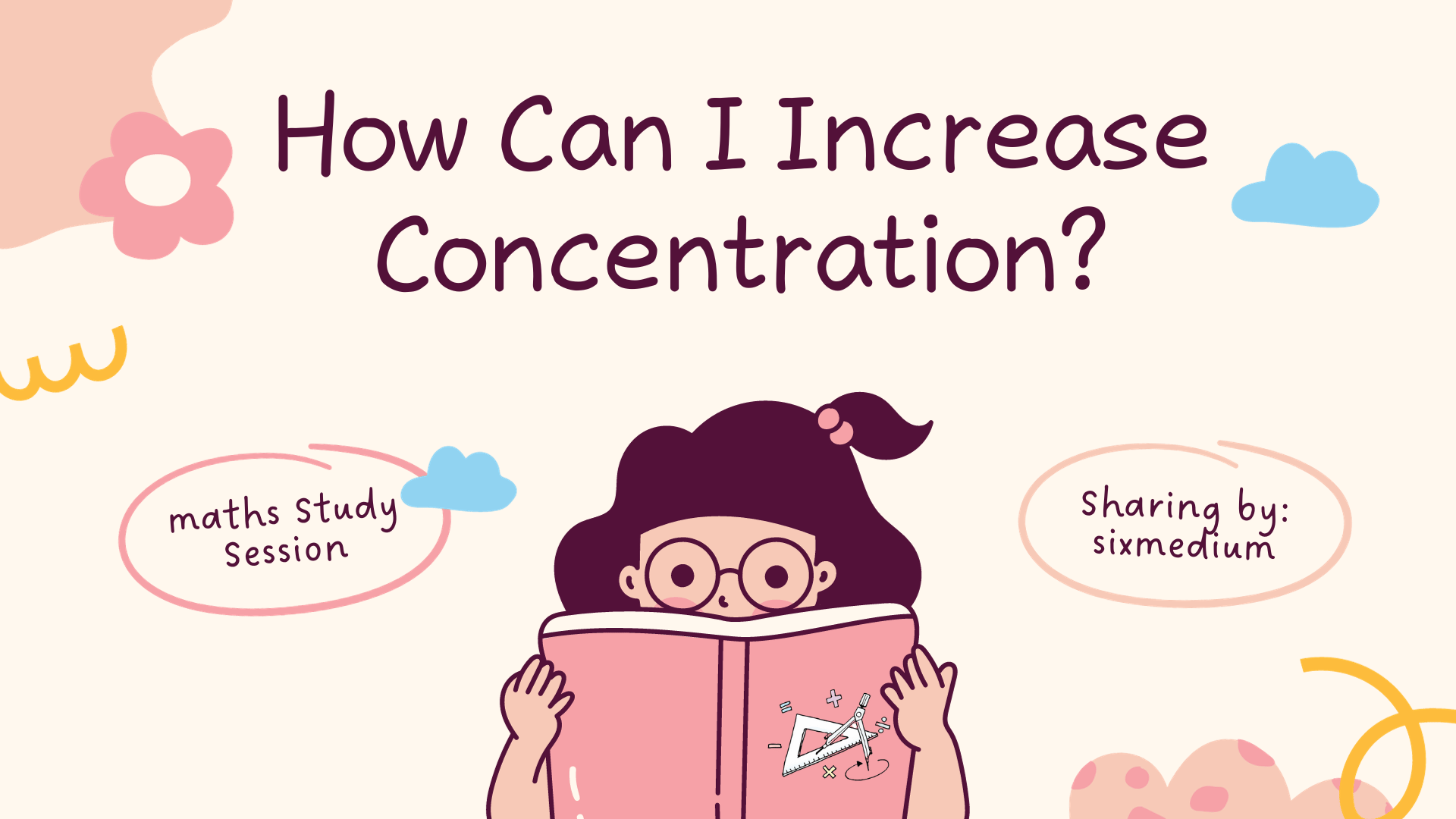Introduction
Are you wondering How Can I Increase Concentration? In this article, we will explore practical ways to boost your memory, enhance your cognitive abilities, and improve concentration naturally. Let’s dive into effective strategies and expert tips that can help you on your memory and concentration improvement journey.
Hello, everyone! Students often wonder how many hours they spend studying, but what truly matters is how effectively they study during that time. As productivity expert Cal Newport suggests:
Work Accomplished = Time Spent x Intensity of Focus
Let’s break it down:
- Time Spent: This is the amount of time you dedicate to a task or job.
- Intensity of Focus: This measures how much attention and concentration you put into that task.
In simple terms, the more time you spend on something, and the more focused and concentrated you are during that time, the more work you’ll accomplish. It’s like saying that to get a lot of work done, you need to spend enough time on it and really concentrate on what you’re doing.
Now, when it comes to work, there are two ways to approach it:

1) Deep Work (Best)
Deep Work is a concept coined by productivity expert Cal Newport. It refers to the state of focused and undistracted work where you give your full, concentrated attention to a task. During Deep Work, you block out distractions and immerse yourself in the work, allowing you to produce high-quality results efficiently.
Example: Imagine you have a challenging project to complete. Deep Work means finding a quiet space, turning off your phone and email notifications, and dedicating uninterrupted time to work on the project. You avoid multitasking and focus solely on the task at hand, which enables you to complete it more effectively and with better results. This concept emphasizes the quality of work over the quantity of time spent working.
2) Shallow Work (Waste)
Shallow Work involves tasks that are not very challenging and don’t require your full attention. These tasks are usually easy and can be done quickly, often involving interruptions and distractions, like answering emails or attending routine meetings.
Example: Imagine you’re at work, and you spend time replying to simple emails or attending short, routine meetings. These tasks are not very demanding, and you can do them while also checking your phone or chatting with colleagues. They are necessary but don’t require your deepest focus or thinking.
Shallow Work is important, but it should be balanced with Deep Work (tasks that need your full attention) to stay productive and accomplish essential goals.
Advantages of Deep Work:
- Higher Quality Work: Deep Work allows you to focus intensely on tasks, resulting in better quality outcomes. You make fewer mistakes and produce more valuable results.
- Increased Productivity: When you block distractions and immerse yourself in deep work, you get more done in less time, boosting your overall productivity.
- Enhanced Learning: Deep Work aids in mastering complex subjects or skills because it encourages in-depth understanding and retention of knowledge.
- Greater Creativity: Deep Work provides the mental space to think creatively and come up with innovative ideas and solutions.
- Improved Problem Solving: It helps you tackle difficult problems effectively by dedicating undistracted time to analyze and find solutions.
Now, here are two examples of people who benefited from Deep Work:

Marie Curie: The famous physicist and chemist, Marie Curie, conducted deep, focused research to discover the elements radium and polonium. Her deep work allowed her to make groundbreaking contributions to science, earning her two Nobel Prizes.
J.K. Rowling: The author of the Harry Potter series, J.K. Rowling, used deep work to create the magical world of Hogwarts. By immersing herself in focused writing sessions, she produced a series of books that captivated millions of readers worldwide.
These individuals achieved greatness and made significant contributions to their fields by prioritizing deep, concentrated work.
Disadvantages of Shallow Work:
- Low Impact: Shallow Work tasks often have little impact on your long-term goals and productivity. They may keep you busy but don’t contribute significantly to your success.
- Distractions: Shallow Work is prone to interruptions and distractions, making it challenging to stay focused and complete important tasks.
- Stress: Constantly switching between shallow tasks can be stressful and exhausting, as it doesn’t allow for deep concentration.
- Reduced Creativity: Shallow Work doesn’t provide the mental space needed for creative thinking and problem-solving.
Avoiding Shallow Work and Doing Deep Work:
- Prioritize Tasks: Identify your most important tasks that require deep thinking and focus on them first. Set aside specific time blocks for deep work.
- Eliminate Distractions: Find a quiet space, turn off notifications, and let others know you’re unavailable during deep work sessions.
- Set Clear Goals: Define clear objectives for your deep work sessions to stay on track and measure your progress.
- Time Blocking: Use time-blocking techniques to schedule deep work into your daily or weekly routine. Treat it as an appointment with yourself.
- Take Breaks: Alternate between deep work and short breaks to refresh your mind and maintain productivity.
- Batch Shallow Work: Group similar shallow tasks together and designate specific times to tackle them, rather than letting them interrupt your deep work.
By prioritizing deep work, minimizing distractions, and structuring your tasks effectively, you can achieve higher productivity and more meaningful results.

Conclusion
In conclusion, by embracing the concept of Deep Work and focusing our efforts on tasks that truly matter, we can achieve higher productivity and produce better results. To do this, we must prioritize our work, eliminate distractions, and set clear goals for ourselves. Just remember, “How Can I Increase Concentration ?” Well, the answer lies in the quality of our work, and deep, focused efforts are the key to unlocking our full potential.



